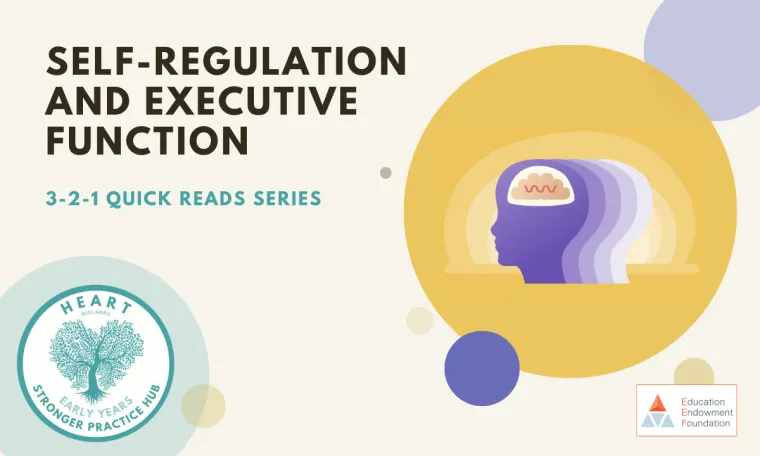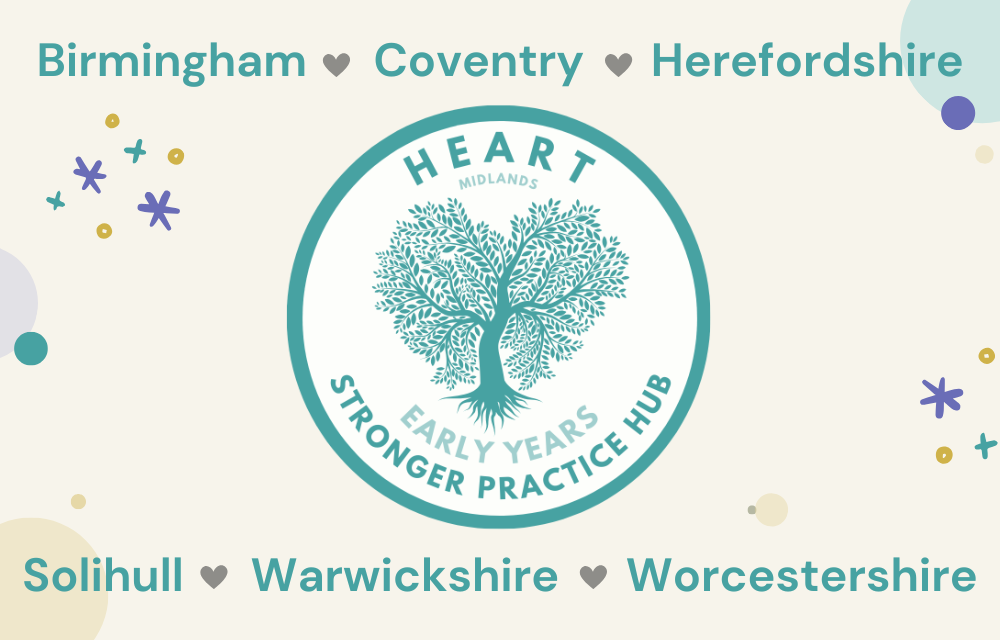Explore themes from the Early Years Evidence Store with our 3-2-1 Quick Reads Series!

Self-Regulation and Executive Function
Self-regulation involves a complex range of skills and abilities that enable children to monitor their emotions and thoughts and choose how to adapt their behaviour in different circumstances. It also includes working towards a goal, which may be self-chosen or guided by a suggestion or request from an adult.
Very young children begin to develop their self-regulation, in part, through close support and co-regulation from the adults around them. Through teaching, modelling, and practice, children gain an increased capacity to regulate their thoughts, emotions, and actions.
Self-regulation supports children’s executive function.
Executive function refers to a set of skills that are often used together. These require teaching and modelling, practice, and repetition to develop.
Executive function can help children resist their impulses and control how they direct their attention; it also helps children to hold information in mind so they can apply it, such as remembering the rules of a game while they play.
